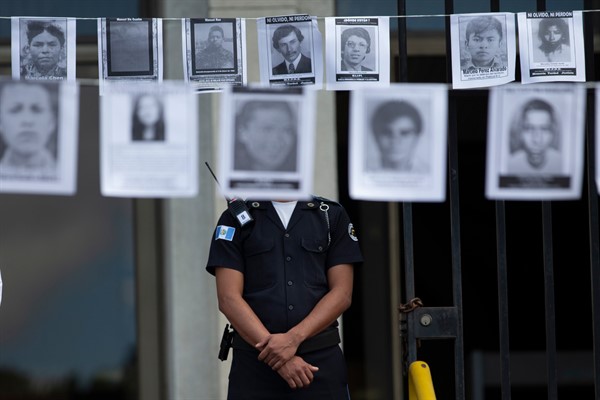Earlier this month, Guatemala’s movement for transitional justice received a major boost when a judge charged six retired military officers for their alleged participation in the deaths and forced disappearance of at least 183 civilians during the country’s bloody, 36-year civil war, which ended in 1996. Six others remain in custody over the same allegations but were not yet charged.
But the progress coincided with an almost immediate backlash from Guatemala’s political elites. Soon after the retired officers were initially arrested last month, conservative lawmakers presented a bill that would free convicted war criminals and prevent prosecution of crimes related to the country’s armed conflict.
The proposed amnesty law would protect perpetrators of civil war-era atrocities and close the door on future efforts in Guatemala to seek justice for victims of past human rights abuses. At a moment when the Biden administration is pressuring Central American governments to bolster rule of law and accountability, particularly with regard to corruption, the pushback against transitional justice highlighted the inextricable link between the region’s failure to prosecute historical crimes and the modern-day pattern of impunity.

